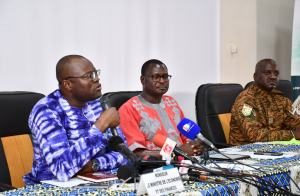Niger: Creation of the Confederation of the Alliance of Sahel States, a new chapter for West Africa

On July 6, 2024, a significant milestone was reached in West Africa as the presidents of Mali, Burkina Faso, and Niger—Assimi Goïta, Ibrahim Traoré, and Abdourahamane Tiani—officially announced the formation of the Confederation of the Alliance of Sahel States (AES) in Niamey.
This bold move signifies the end of their participation in the Economic Community of West African States (ECOWAS).
This regional organization that has existed for five decades has often been criticized for not meeting the needs of its member states.
By creating the AES, these leaders demonstrate remarkable determination and courage, emphasizing their commitment to the sovereignty and welfare of their people.
The AES will focus on addressing security, economic, and monetary issues. The region’s security context, marked by instability and terrorist threats, necessitates close cooperation and responses tailored to local realities.
By distancing themselves from ECOWAS, which is frequently seen as heavily influenced by Western powers, the AES member states aim to take control of their destinies and adopt strategies that better align with their interests.
The creation of the AES also serves as a lesson for ECOWAS and the African Union (AU).
After 50 years of ECOWAS’s existence, the organization has often been criticized for its ineffectiveness and inability to resolve regional crises.
Their initiative underscores a desire to reinvent regional cooperation with a focus on self-determination and independence.
In essence, the establishment of the AES represents a break from a long history of dependence and external interference.
It embodies the aspirations of the Sahelian people for a future of peace, stability, and prosperity, shaped by and for themselves.
The three presidents have not only honoured their commitments but have also opened a new chapter for West Africa, one filled with both promise and challenges.
Cedric KABORE












